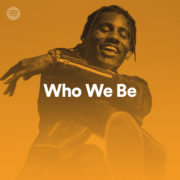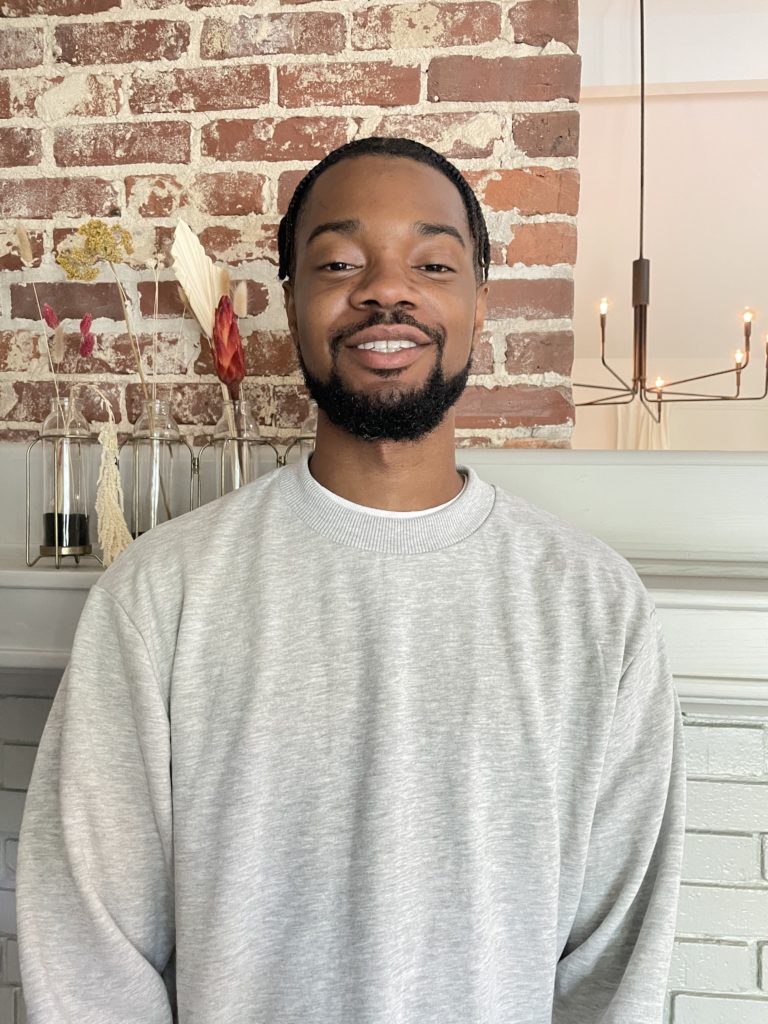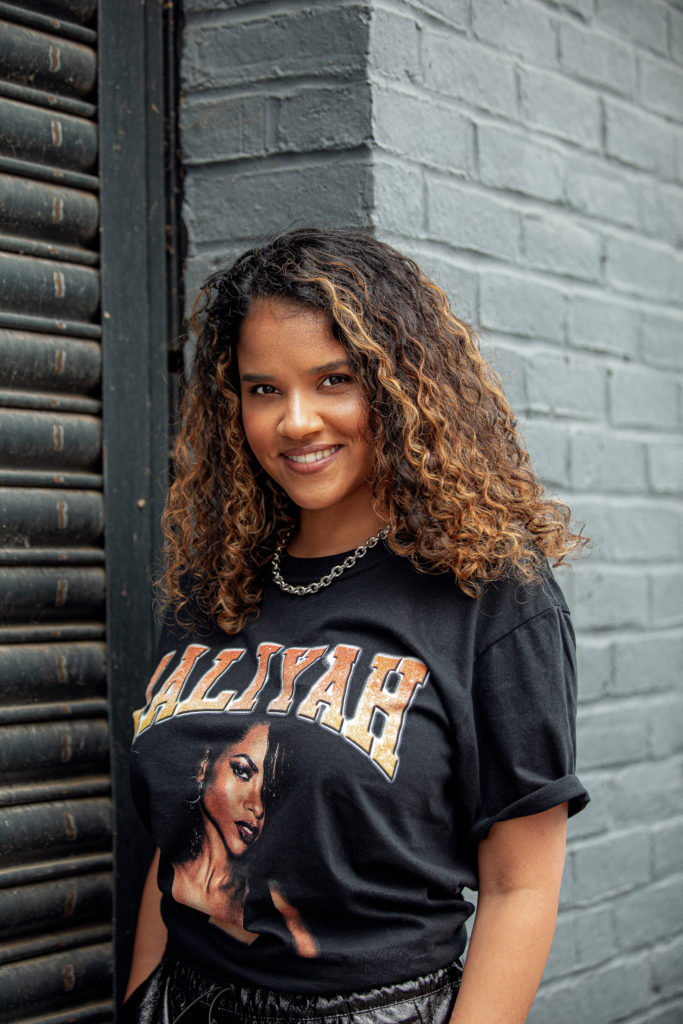Meet The Team: Who We Be’s Joel Borquaye & Safiya Lambie-Knight

If you ever wanted to get some insight into the behind the scenes of Who We Be – Joel and Safiya are definitely two people that could shine a light on it.
Who We Be is a machine with many moving parts – and a lot of that work is done behind the scenes by people like Joel Borquaye and Safiya Lambie-Knight, whose roles (although very different) bring their respective expertise to make Who We Be the cultural staple that it is today. Here is what Joel and Safiya had to say.
Zweli: Please could you just give a brief introduction to yourselves?
Joel: You go first [laughs]
Saf: [laughs] Hi, I’m Saf. I am the lead for the Artists & Label Partnerships team at Spotify in the UK and Ireland. I look after our relationships with labels, distributors, artists, and managers. Our team is responsible for all partnership opportunities so any campaigns, marketing – basically anything you see that’s artist-led on platform – we’re responsible for. Previously I was lead for Black Music in the UK, so I worked closely with Joel across all of our relationships specifically across Hip-Hop, R&B (and the subgenres within it) as well as African and Caribbean music and culture. I’ve also led on playlist brands and Who We Be for about 3 years now.
Joel: I’m Joel, an Editor at Spotify. I’m a genre specialist- so I look after specific genres and that includes R&B, Hip-Hop, Dancehall, Afrobeats, Jazz, Soul and a few other genres as well. That involves me looking after different playlists and playlist brands at Spotify. This is predominantly for the UK and Ireland, but also in the Caribbean and West Africa.
Zweli: The two of you both have very different roles, how do they come together when working on Who We Be?
Saf: Joel looks after the playlist itself as an Editor – Who We Be is one of his key playlists. Who We Be is a flagship playlist brand, it is also the biggest playlist in the UK and Ireland for the genres it represents – and it has been since it launched. We have also created various extensions of the Who We Be brand that we built off the back of the success of the playlist over the years. We’ve done Who We Be Live events at a couple of different locations with sell out shows in London at Alexandra Palace, and in Birmingham and Manchester. We’ve done a writing camp under the Who We Be brand with our songwriter relations team, and we also launched the Who We Be Talks_ podcast which Joel and I both work across. So, the way that we work together is essentially that we support each other. We work quite closely together on the podcast, on everything really – we talk to each other a lot!
Zweli: Joel, tell me a little bit more about the playlist side of things.
Joel: The Who We Be brand was created by Austin Daboh in 2016 and since its creation it has been constantly evolving. Who We Be is a representation of Black British culture and within the culture we listen to an array of different genres such as Dancehall, Afrobeats, Hip-Hop, and R&B. So now there’s more of a collection of genres within that list from the UK as well as the Caribbean and Africa as that’s what best represents the culture here in the UK.

Zweli: Something you both mentioned is accurate representations of culture specifically in the UK, how do you guys stay on top of making sure that’s what you’re delivering?
Joel: We’re very blessed to be a part of the culture and having grown up in it we have that first hand experience as well. So not only can we draw from the audience, in some respects we’re also a part of that same audience. I make sure I’m going to all the relevant events and festivals when things are open. And when not, making sure we’re part of the conversation – for example our partnership with No Signal showed that we were really first out of the gate. That’s because before anything we’re fans which keeps us on top of stuff.
We do our research, making sure we’re trying to find and champion new artists. But also, that when we find these new artists we amplify them. It’s also sometimes about finding something the culture doesn’t know about yet and presenting it to them and one really good example of that was S1mba with his track “Rover”. That was a Spotify for Artists story – he pitched the song, we saw it on the back end when it had no prior support or traction outside of Spotify but musically sounded like the perfect track for Who We Be . Being able to be part of that story and helping get it to an audience and having the audience accept it shows that understanding of the culture.
Saf: To add to that, we have that pitching tool which anybody can access. So basically, anybody can pitch music to us that they’re releasing – making sure we’re on top of that at all the different levels of artists as Joel said, but also making sure we do things at the right times. That means across playlists and anything we deliver we try to make it reflect what’s current. It also takes reading things and listening to things, off platform as well, is a really important part of what we do.
Zweli: You both mention being fans of the culture as well as just enjoying your roles individually, what have been your respective favourite moments on this Who We Be journey?
Joel: My favourite moment hands down was casting Harry and Henrie for the Who We Be Talks_ podcast. Saf and I met up with them quite early on in 2019, and previous to that they’d never really worked together but we thought that they could be a great pairing. Then with the help of both the podcast and production team – they’ve honestly become such great assets for the Who We Be brand. It’s now great to see them also working together outside of Spotify and just listening to them on the podcast really shows a great reflection of what we wanted to get out of the Who We Be brand.

Saf: That’s a really good one, I think I would second that. It’s been really interesting being a part of the last season and this season of the podcast. My personal highlight is Who We Be Live 2019 in Manchester. It was a big event; Joel hadn’t started but me and Kieran Lancini (Project Manager for Who We Be) worked across it and I had to book the line up for it and schedule it and make all of those kinds of things happen. At the time it’s really daunting because you think “what if this isn’t right for the audience?” We had Aitch headline along with Tion Wayne – we announced with just the two of them and it sold out – it was our fastest selling Who We Be Live ever. Looking back on it now, and who we had on the bill, I’m really proud of it. We had Doja Cat, who at the time was new and fairly up and coming but now she’s a global superstar. We also supported some upcoming local artists, such as Zeph and Aystar as well as some special guest appearances that weren’t announced like M Huncho. We also had Pop Smoke which was of course a special moment as it marked one of his last UK appearances, and we had Bugzy Malone who hadn’t performed in Manchester for a very long time – so yeah it went off. Looking back two years on it’s amazing to see how those artists have grown significantly in that space of time as well.
Zweli: From when each of you started working on Who We Be and where we are now, how has the vision changed if it has changed at all?
Joel: Saf might have a different perspective, but for me it’s amazing to see, because I worked in the industry when Who We Be first started and have seen what it did for Hip-Hop music in the UK which is incredible. Our vision is for it to be an accelerator not just for Hip-Hop but for other underrepresented genres as well. With Hip-Hop now thriving as one of the biggest genres in the UK, our goal is to champion the other genres in the same way. We have really exciting artists coming up like Bellah and Tamera in R&B, Skillibeng in Dancehall, Bad Boy Timz and Rema in Afrobeats who have crossed over into the Who We Be playlist and performed really well. It will be exciting in five years time to see where those genres are in the UK.
Saf: I’d agree, when it started Who We Be was a completely different playlist and brand and that’s based largely on the evolution of music and what has become popular in that space of time as well. But now it’s really reflective of a broad range of genres and is the biggest playlist representing these specific genres – but for us I think the next step is cementing it in everyone’s minds as that.
Zweli: Personally, what would be the one big thing you would want to see from Who We Be in the future?
Saf: It’s a hard question. It’s always on and we’re always working on it and thinking about it and thinking about what’s next, especially on the podcast team as we work closely with them on thinking “this guest was really good so who do we get on next?”. For the podcast I’d say the thing I want to see is international artists, obviously Covid has restricted a lot of our potential as we like to have guests in the studio as it creates a better rapport between Harry, Henrie and the guest. So hopefully as things open up more, we can meet those bigger ambitions and get more international artists on. Then also as I’ve already mentioned, it’s also about the brand being cemented as an important part of Black culture but also being recognised as a mainstream brand because of that.
Joel: Similar to Saf I also want to see the brand cemented in everyone’s mind. I want it to be the go-to for culture and music in the UK – that is the thing. As has been said we’ve got the live side, the playlist, the podcast but I don’t want it to just be limited to that. Whether we add more things, or it just becomes a bigger voice for Black culture and what it represents I just want to see the brand expanding.
As mentioned, you can submit your music through the Spotify for Artists tool which you can find here as well as listen to both the Who We Be podcast and playlist on Spotify. If you want to hear more about the Who We Be story from the perspective of the podcast hosts Harry Pinero & Henrie Kwushue, check out our interview with them here.





![ZINO VINCI’S ‘FILTHY & DISGUSTING’EP BRINGS YOU TO THE CORE OF THE ARTIST [@ZinoVinci]](https://guap.co/wp-content/uploads/2023/10/Zino-4.jpg)




